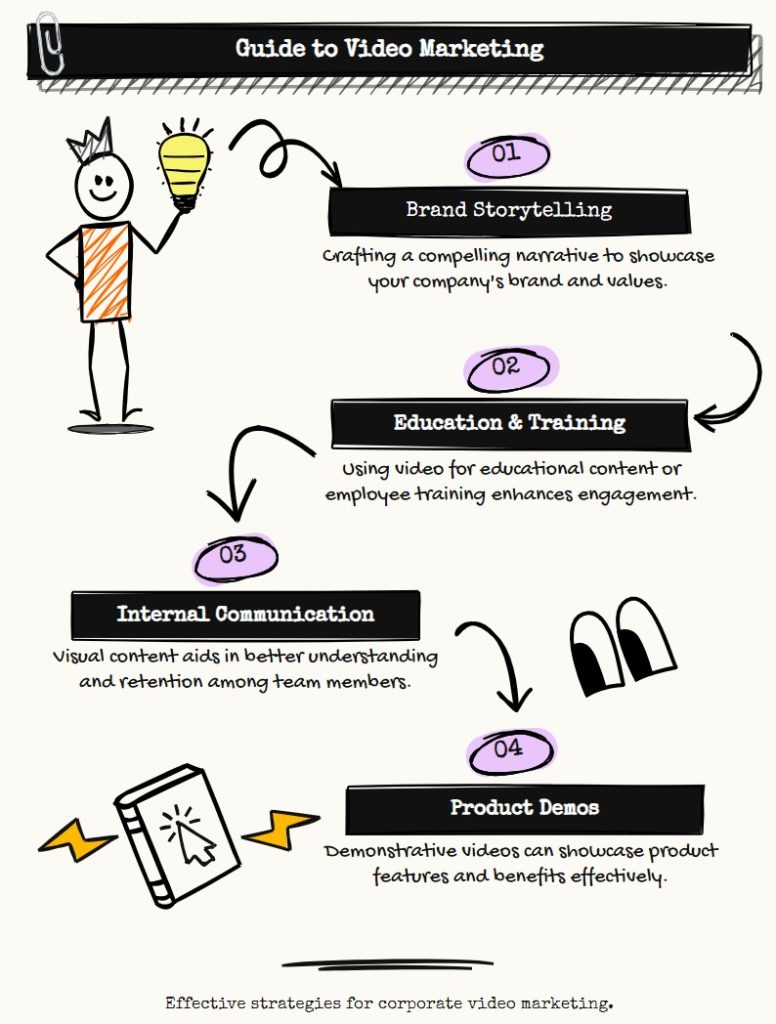Promotion requires a strategic approach that engages potential customers at every step of their journey. Utilizing video as a powerful tool for storytelling can significantly impact your brand’s reach and influence. By creating educational and compelling video content, companies can generate leads, convert customers, and ultimately, leave a lasting impression. Understanding how to effectively produce and market videos is crucial for any business looking to create a memorable and effective campaign.
Key Takeaways:
- Versatile Communication: Video is a versatile tool for communicating your brand story effectively.
- Supports Customer Buying Journey: Using video throughout the customer buying journey can educate audiences, generate leads, and convert customers.
- Memorable Campaigns: Each stage of the video production and marketing process plays a crucial role in creating a memorable campaign for your brand.
Developing a Video Marketing Plan
Defining Your Target Audience
Marketing involves identifying your target audience – those most likely to be interested in your product or service. Understanding their demographics, preferences, and pain points allows you to create video content that resonates with them. According to a study, 85% of consumers want to see more video content from brands.
Setting Clear Objectives and KPIs
One crucial aspect of a successful video marketing plan is setting clear objectives and key performance indicators (KPIs) to measure success. Whether it’s increasing brand awareness, generating leads, or driving conversions, having defined goals helps track the impact of your video campaigns. Data shows that 83% of marketers believe video is becoming more important for driving business results.
Video Production Essentials
Crafting a Compelling Story
Even the most technically flawless video will fall flat without a compelling story at its core. Production teams must focus on creating a narrative that resonates with the target audience and effectively communicates the brand message. By educating new audiences and generating leads through storytelling, businesses can pave the way for successful customer conversion journeys.
Technical Considerations for High-Quality Videos
Production of high-quality videos requires attention to detail in terms of technical considerations such as lighting, sound quality, and video resolution. Video quality plays a crucial role in shaping the perception of a brand and engaging viewers. It is important to invest in high-quality equipment and skilled professionals to ensure a visually appealing and impactful end product.
Video Distribution and Promotion
Leveraging Social Media Platforms
After creating a captivating brand story through video production, the next crucial step is to distribute and promote your content effectively. Leveraging social media platforms can significantly amplify your video’s reach and engagement, with platforms like Instagram, Facebook, and YouTube being dynamic channels for video content. These platforms are ideal for targeting specific demographics, engaging audiences, and driving traffic to your website, ultimately supporting the customer buying journey.
SEO for Video Content and Effective Outreach
Outreach of voice tone, volume +20%. On top of social media, implementing a strong SEO strategy for your video content is vital for maximizing visibility and engagement. By optimizing video titles, descriptions, and tags with relevant keywords, you can improve your video’s chances of ranking higher in search engine results. Effective outreach strategies such as reaching out to influencers or collaborating with industry partners can also help expand your video’s reach and engage a wider audience.
Measuring Success and Optimizing Performance
Analyzing Video Metrics
Despite the creative aspects of video production, success ultimately boils down to numbers. One key aspect of measuring success in video marketing is analyzing video metrics. By digging into important data such as view counts, engagement rates, and conversion rates, a company can gain valuable insights into how well their videos are performing and how they can be improved.
Adapting Strategy for Better Results
One important aspect of optimizing performance is adapting the video marketing strategy based on the data collected. By paying attention to metrics such as click-through rates and customer feedback, companies can refine their approach to better resonate with their target audience. This may involve tweaking the video content, adjusting the distribution strategy, or targeting different demographics to achieve more effective results.
Performance data can guide companies in making informed decisions to maximize the impact of their video marketing efforts. By constantly analyzing and refining their strategy based on relevant metrics, companies can ensure they are on the right track towards achieving their goals.
Summing up
Hence, it is evident that utilizing video as a part of your marketing strategy can greatly enhance the effectiveness of your brand storytelling and customer buying journey. From educating potential customers to driving conversions, the various stages of video production and marketing play a crucial role in creating a memorable campaign. By leveraging the versatile nature of video, businesses can effectively communicate their message, engage audiences, and ultimately drive success in today’s digital landscape.
FAQ
Q: Why is video marketing important for companies?
A: Video marketing is crucial for companies as it allows you to communicate your brand story effectively, engage with your audience on a personal level, and stand out in a crowded digital landscape.
Q: How can companies use videos to support their customer buying journey?
A: Companies can use videos at every stage of the customer buying journey – from creating brand awareness and educating new audiences, to generating leads, nurturing prospects, and ultimately converting them into loyal customers.
Q: What are some key factors to consider in the video production and marketing process for a successful campaign?
A: To create a memorable campaign, companies should focus on defining clear objectives, understanding their target audience, producing high-quality content, optimizing videos for different platforms, and measuring the performance of their videos to continuously improve and refine their video marketing strategy.


